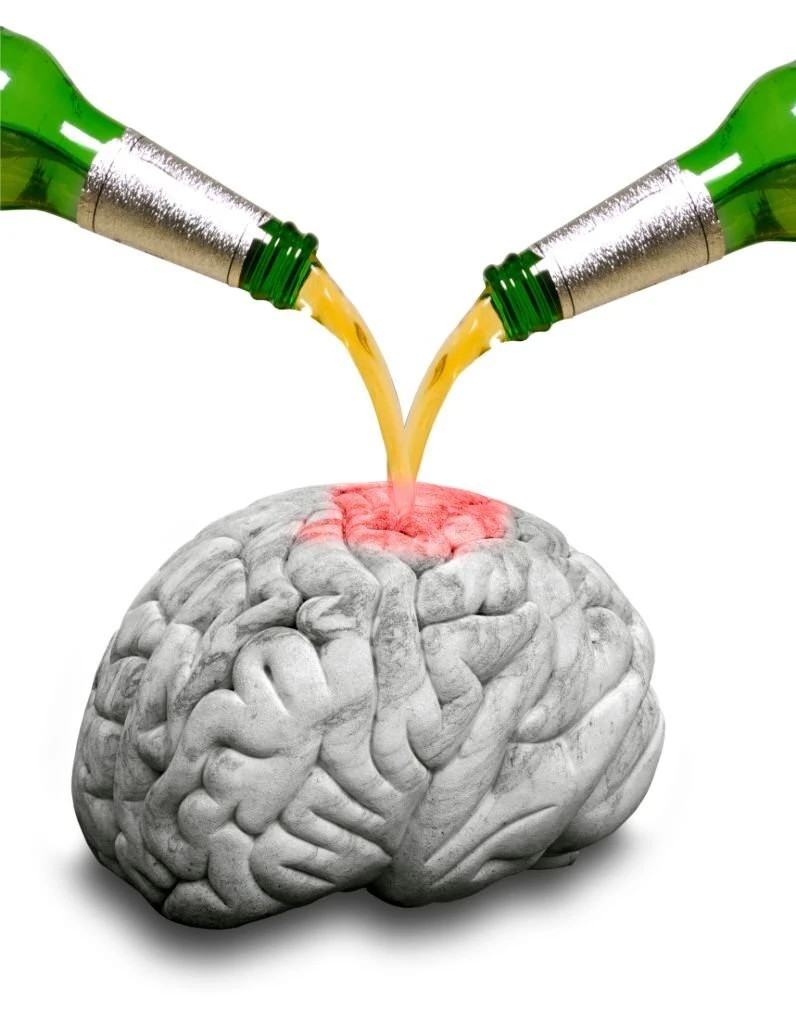Alcohol, a widely consumed psychoactive substance, has been an integral part of human culture for centuries. It’s often enjoyed in moderation, but when consumption turns into abuse, the effects on the brain can be profound and detrimental.
While occasional and responsible alcohol consumption might not cause significant harm, prolonged and excessive use can lead to serious consequences that impact various aspects of brain function. This article covers the intricate relationship between alcohol abuse and its effects on the brain.
The Brain and Alcohol Interaction
The brain, as a complex organ, consists of billions of neurons communicating through chemical signals.
Alcohol interacts with this delicate communication system, affecting neurotransmitters, brain structure, and overall function. When we consume alcohol, it enters our bloodstream and quickly reaches the brain, which has numerous mental effects.
Alcohol primarily affects the neurotransmitter gamma-aminobutyric acid (GABA) and the excitatory neurotransmitter glutamate. GABA is responsible for inhibiting brain activity, inducing relaxation, and reducing anxiety. Alcohol enhances the effects of GABA, leading to the characteristic sedative and calming sensations.
On the other hand, alcohol suppresses glutamate, which results in impaired cognitive function and sluggish reactions. To learn more, seek addiction counseling from experts.
Short-Term Effects
In the short term, alcohol’s effects on the brain are evident in behaviors such as slurred speech, impaired coordination, and compromised judgment. These effects stem from alcohol’s impact on the brainstem, which controls basic functions like breathing, heart rate, and consciousness.
Excessive alcohol intake can depress the brainstem to the point where these vital functions are compromised, leading to blackouts, unconsciousness, or even life-threatening situations.
Long-Term Effects
The long-term consequences of alcohol abuse are much more alarming. Chronic alcohol abuse can lead to structural brain changes, specifically in the hippocampus and frontal cortex. The frontal cortex is important for decision-making, impulse control, and personality expression. Alcohol-related damage to this area can result in poor judgment, impulsive behavior, and a lack of inhibitions.
The hippocampus helps form new memories and learning. Alcohol abuse can shrink the hippocampus, leading to memory problems and difficulty in retaining new information. This is one reason why individuals with alcohol use disorders often struggle with cognitive tasks and show signs of memory impairment.
The Risk of Addiction
One of the most severe outcomes of alcohol abuse is the development of addiction. Addiction, known as alcohol use disorder too, involves a compulsive need to drink despite negative consequences.
The condition is closely linked to changes in the brain’s reward system, which reinforces certain behaviors by releasing dopamine, a neurotransmitter connected to pleasure.
Repeated alcohol consumption causes the brain to adapt by reducing its natural dopamine production.
As a result, individuals may need to consume more alcohol to experience the same pleasurable effects. This cycle reinforces addictive behavior, making it increasingly difficult for individuals to control their drinking.
The Role of Genetics
Genetics also play an important role in determining one’s susceptibility to alcohol addiction. Some people are genetically predisposed to process alcohol differently, impacting how it affects their brains and body.
Certain genetic variations can lead to a lower tolerance for alcohol, making individuals more sensitive to its effects and potentially reducing the risk of heavy drinking.
On the other hand, certain genetic factors can increase the risk of alcohol dependence.
Seeking Help: The Path to Recovery
Recognizing the detrimental effects of alcohol abuse on the brain is the first step toward seeking help.
If you or a loved one is struggling with alcohol addiction, it’s essential to consider professional treatment. An addiction treatment center provides a supportive environment to overcome individuals’ dependence on alcohol.
These centers offer a range of evidence-based therapies, counseling, and support groups tailored to each individual’s needs. Cognitive-behavioral therapy (CBT), motivational enhancement therapy, and family therapy are common approaches used to address the psychological aspects of addiction. Medical interventions and detoxification might also be necessary, especially in cases of severe alcohol dependence.
Recovery from alcohol addiction is a challenging journey that requires commitment and dedication. The brain’s remarkable plasticity allows it to heal and adapt over time, even after prolonged alcohol abuse.
With the right treatment and support, individuals can rewire their brain from addiction, experience cognitive improvements, reduced cravings, and an enhanced quality of life.
In Conclusion
Alcohol abuse has far-reaching consequences on the brain. From short-term impairments in coordination and judgment to long-term structural changes and the risk of addiction, the effects are substantial.
Understanding the impact of alcohol on the brain underscores the importance of responsible drinking and early intervention in cases of alcohol use disorder. If you or someone you know is struggling with alcohol addiction, don’t hesitate to seek help from a reputable addiction treatment center.
The brain’s ability to heal and recover, coupled with effective treatment, offers hope for a brighter and healthier future.

